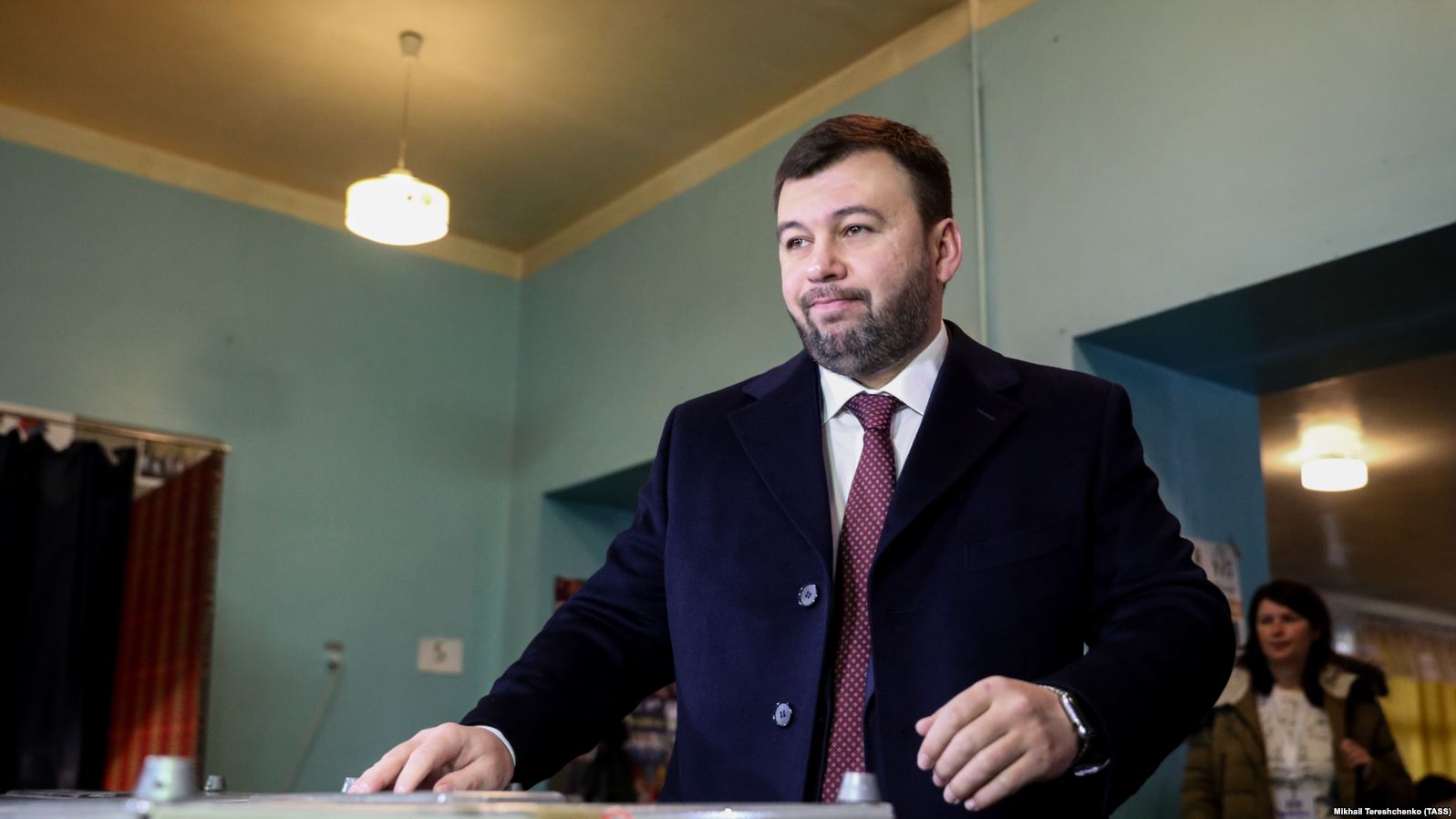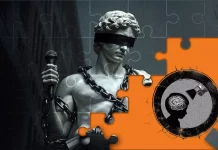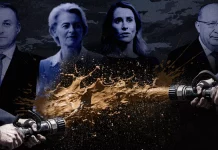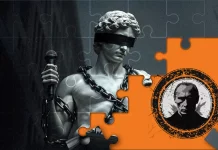
By Polygraph
“After the murder of [former DNR leader] Alexander Zakharchenko under the conditions of a possible vacuum of power, there was a real risk of the total destabilization of the situation in southeastern Ukraine…. The holding of elections made it possible to avoid such a scenario.”
FALSE
Moscow falsely claims stability in eastern Ukraine, despite its continued military intervention.
On November 11, authorities in the Russian-occupied, self-proclaimed “Donetsk and Luhansk People’s Republics” (DNR and LNR) held elections with the apparent goal to legitimize the rule of the already-installed leaders of the proto-states, Denis Pushilin and Leonid Pasechnik.
As Polygraph.info has previously reported, Russian state media has been quick to call those elections free and fair, with some experts seizing on them to support “reintegration” with Russia.
Those elections have been roundly condemned by the Ukrainian and Western governments — the U.S. Embassy in Kyiv called them a “sham” and the European Union issued a statement declaring them “illegal and illegitimate.”
During a briefing on Thursday, November 16, Russian Foreign Ministry spokesperson Maria Zakharova claimed the elections conformed to “the main democratic standards” and “were organized within the framework of universal and equal suffrage,” having been “confirmed by numerous observers from more than 20 countries.”
Polygraph.info previously documented Russia’s long-standing use of unqualified election observers, including during the questionable November 11 vote.
Despite many officials labeling the November 11 election a “sham,” Zakharova said polling helped avert “chaos” in southeastern Ukraine. Her full statement:
“After the murder of [former DNR leader] Alexander Zakharchenko under the conditions of a possible vacuum of power, there was a real risk of the total destabilization of the situation in southeastern Ukraine. This, against the backdrop of the trade and economic blockade imposed by Kyiv and the constant threat of the use of force coming from the Ukrainian leadership, could have negatively affected life in the Donbas and the settlement process in general. The holding of elections made it possible to avoid such a scenario.”
But her claims of stability comes amid reports of 16 attacks on Ukrainian army positions in eastern Ukraine over a 24-hour period on November 15 and 16, leaving two soldiers wounded. The press center of Ukraine’s Joint Forces Operation also said “three occupiers” were killed and another five were wounded.
Russia claims the catalyst for a potential political vacuum was the murky assassination of former DNR head Aleksandr Zakharchenko. Mirroring Zakharova’s language, Russian President Vladimir Putin said those who carried out the murder were “making a dangerous bet on the destabilization of the situation” in the Donbas.
But writing for Spiegel Online, Christian Neef argued there is now a “broad consensus” that Zakharchenko was killed either by Russian security forces or by people from within his own camp.
Russian reports looking to pin blame on Kyiv have only served to raise more questions than answers.
In any case, violent transfers of power have become a common occurrence in the region.
Like Pushilin, Pasechnik, previously LNR security minister, initially came to power not through democratic means: he became the LNR’s acting leader after former LNR head Igor Plotnitsky fled to Russia following an armed putsch in November 2017.
As Spiegel Online’s Neef noted, Igor Girkin, the onetime leader of the Russia-backed separatists in eastern Ukraine and former DNR defense minister, said “bandits” had taken power in both self-declared republics. Girkin also asserted that the Donbas is “simply getting robbed.”
“Many of the recent murders may have been part of a brutal battle for influence and riches,” Neef wrote, adding that the markets and companies “nationalized” by Zakharchenko “are now being returned to their rightful owners.”
Meanwhile, the Jamestown Foundation’s Vladimir Socor has argued that “the violent removal” of Plotnitsky and Zakharchenko contributed to the holding of the November 11 elections, but were not the determining factor.
“These were predictable and almost foreordained by the quadrennial ‘electoral’ cycle that the Kremlin and the DPR-LPR need to perpetuate in the occupied territory,” he wrote. “The ‘republics’ should at least pretend to observe some formal electoral procedures, and generate for their leaders at regular intervals the semblance of a popular mandate. This could strengthen their claim for acceptance de facto as negotiating parties (even short of formal recognition) and make it possible for Russia on the international level to portray its hand-picked proxies as emanations of the local population.”
Ultimately, Russia itself has been pivotal in fomenting and perpetuating armed conflict in eastern Ukraine since the start of hostilities in 2014.
As Polygraph.info previously reported, there is abundant verifiable evidence of the presence of Russian military hardware, troops, intelligence agents, and economic aid from Russia in the Donbas conflict.
President Putin himself once admitted to having some military personnel in the Donbas. Talking heads on Russia state media have similarly made an about-face and admitted the presence of Russian special services operating in eastern Ukraine, saying it would be “stupid to deny that.”
#Russia‘s state TV makes a smooth transition from “our forces were never in #Ukraine” to “of course our Special Services (GRU, FSB, SVR) are there, it would be stupid to deny that.”
[Reminiscent of Putin’s reversal from his earlier denials re: #Crimea]
©️ pic.twitter.com/TVVc1HaDR0— Julia Davis (@JuliaDavisNews) November 14, 2018
Zakharova is essentially arguing that a conflict for which Russia has served as both the impetus and fuel risks spiraling out of control because the previous two leaders in the Russian-occupied territories were violently ousted, potentially at the behest of Moscow and/or its proxies — and that now the situation has stabilized because those who were already operating with impunity have been “legitimized” by elections that much of the Western world condemned as a sham.
Whether or not the arguments that Russia had a hand in the violent transfers of power are true, Russia’s violent military actions in Donetsk and Luhansk are the de-stabilizing force. And so we find that Zakharova’s claim is false.
By Polygraph








